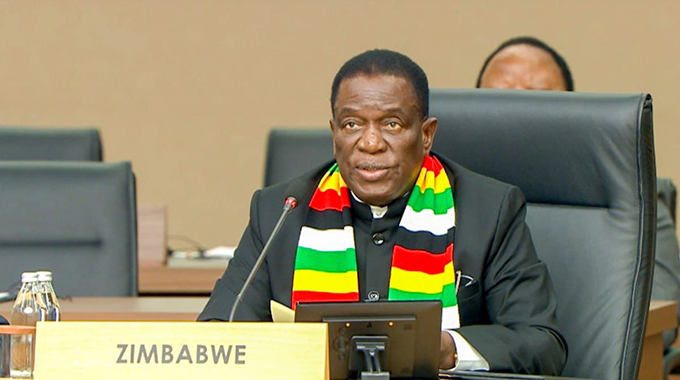Victoria Falls, Zimbabwe — The global urgency to protect and restore wetlands took center stage at the 15th Meeting of the Conference of the Contracting Parties (COP15) to the Ramsar Convention on Wetlands, held in Zimbabwe. This historic event marked the first time in the Ramsar Convention’s 55-year history that a sitting head of state, President Emmerson Mnangagwa of Zimbabwe, formally opened the proceedings—signaling elevated political commitment to wetlands as keystones of global sustainability.
“Wetlands Are Lifelines” – Mnangagwa Sets the Tone
With the theme “Protecting Wetlands for Our Common Future”, COP15 has convened delegates from 172 countries to discuss the future of wetlands as crucial assets for climate resilience, biodiversity, and sustainable livelihoods.
“Wetlands are not wastelands. They are lifelines,” declared President Mnangagwa during his keynote address, as he outlined Zimbabwe’s ambition to elevate global wetland protection. He emphasized that the conference is “not only about Zimbabwe—it is about the world coming together to save our vital ecosystems for future generations.”
At the heart of his address was the anticipated Victoria Falls Declaration—a proposed global pact aimed at boosting wetland restoration efforts through a dedicated Global Wetland Restoration Fund. The initiative seeks to embed wetlands in climate change mitigation strategies, sustainable development plans, and international financing structures.
IUCN Calls for Action Beyond Pledges
Alongside Zimbabwe’s leadership, the International Union for Conservation of Nature (IUCN) issued a powerful call to action, urging delegates to shift from promises to implementation.
In a statement released on its website, IUCN emphasized the need for concrete, scalable solutions based on scientific frameworks and integrated into national biodiversity strategies. It urged countries to adopt instruments such as wetland inventories, resilient governance systems, and tailored financing mechanisms.
IUCN Director General Dr. Grethel Aguilar reinforced these messages during opening sessions, stating that wetlands “must move to the center of national and global environmental agendas.”
Ramsar Secretariat: Time for Science-Based Policy
Dr. Musonda Mumba, Secretary General of the Ramsar Convention, reiterated the urgency of COP15 becoming a transformative moment. “This must be the moment where political leadership meets practical action… where wetlands are finally recognized as the backbone of sustainability,” she told delegates during preparatory sessions.
Mumba highlighted disturbing global trends: wetlands make up just 6% of the Earth’s land area but have declined by 37% since 1971, and freshwater species populations have plummeted by 84% since 1970. These statistics, she warned, reflect an ecological emergency that requires immediate, science-aligned policy changes and socio-economic planning.
She also stressed the need for regional collaboration and alignment across flyways, cross-border ecosystems, and transboundary water bodies, all of which are essential for coordinated wetland protection.
Global Participation and Regional Commitments
Delegations from around the world are using COP15 to showcase regional progress and deepen cooperation. China’s National Forestry and Grassland Administration reaffirmed its dedication to strengthening legal frameworks for wetland conservation. Chinese delegates emphasized international cooperation and offered to share capacity-building tools and technical knowledge with other nations.
The conference also witnessed the launch of the Southern Africa Ramsar Regional Initiative, a platform designed to scale up conservation action through regional collaboration.
Dozens of side-events have highlighted innovation in areas such as ecohydrology, urban wetlands, youth leadership, and climate financing. Special attention has been given to youth engagement and new funding models that align conservation efforts with urban planning and economic development.
Looking Ahead: A Defining Moment for Wetlands
As COP15 continues through July 31, global expectations are rising for a unified declaration that prioritizes wetlands within climate, biodiversity, and development frameworks. With Zimbabwe at the helm, the conference is poised to deliver a watershed moment for the Ramsar Convention and the wetlands it seeks to protect.
What began with a historic presidential opening now carries the weight of global urgency. Delegates and observers alike hope COP15 will become the moment when political will translates into bold implementation—transforming wetlands from neglected ecosystems into essential infrastructure for people and planet.


